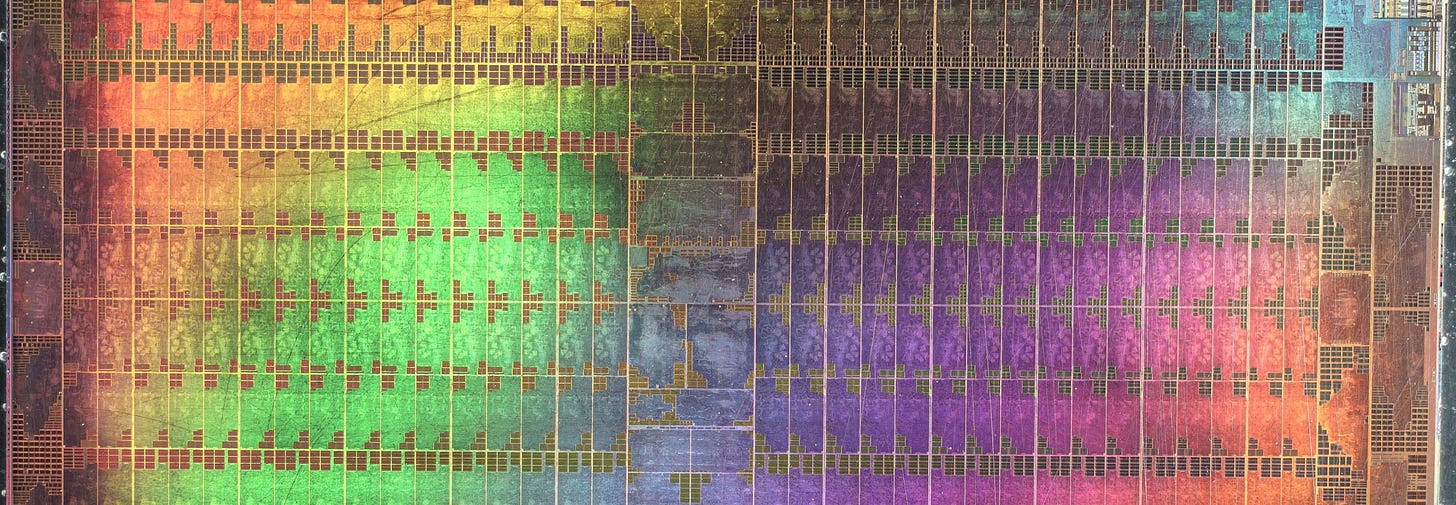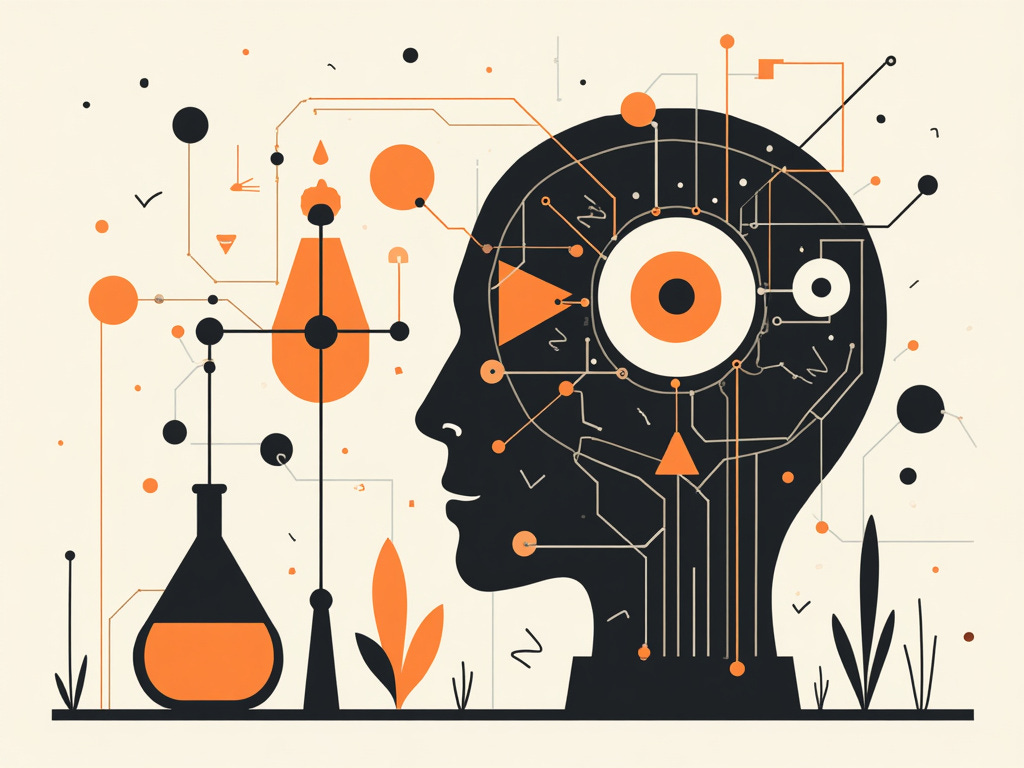The Dawn of General-Purpose AI in Scientific Research: Mapping Our Future
General-purpose AI could fundamentally transform how research is conducted. It is time to start mapping the road towards this future.
Throughout history, scientific discovery has been the foundation of human progress. From the wheel to the Internet, from penicillin to CRISPR, science has continually reshaped our world, driving societal change and improving our quality of life. It has solved problems we once thought unsolvable and opened doors to possibilities we never imagined.
Now, we might approach another scientific revolution—one driven by artificial intelligence.
Imagine a world where AI does not just assist in data analysis, but formulates hypotheses, designs experiments, and makes groundbreaking discoveries. This is not science fiction—it is a rapidly arriving future. As we approach this new era, it is critical that we map the landscape ahead.
The Next General-Purpose Technology
To understand the potential impact of AI on scientific research, it's helpful to look back at previous general-purpose technologies. Steam power, electricity, and computers are all examples of general-purpose technologies that fundamentally altered not just one industry, but the entire technological and economic landscape.
These technologies did not just improve efficiency—they enabled entirely new ways of working, living, and thinking. Their effects touched every corner of society, from the structure of our cities to the nature of our jobs.
Now, we're witnessing the emergence of what may be the most powerful general-purpose technology yet: general-purpose artificial intelligence (GPAI). Like earlier general-purpose technologies, these GPAI systems have the potential to revolutionize not just one field, but the entire spectrum of human endeavor—with scientific research at the forefront.
“General-purpose AI model means an AI model, including where such an AI model is trained with a large amount of data using self-supervision at scale, that displays significant generality and is capable of competently performing a wide range of distinct tasks […]”
— Article 3 of the EU AI Act, June 2024
General-Purpose AI: A New Frontier in Scientific Inquiry
When we talk about AI in research, we are not just referring to narrow systems designed for specific tasks anymore. This recent change began with large language models such as OpenAI’s GPT-4 or Anthropic’s Claude models. But new models are quickly moving beyond the confines of language, becoming capable of visual and auditory processing, complex reasoning and tool use. We are looking at the emergence of GPAI systems capable of doing meaningful scientific tasks — systems with broad capabilities that could rival the performance of human researchers across multiple domains.
This is not just another technological step forward. It is a paradigm shift that could fundamentally alter how we approach scientific inquiry. GPAI could connect dots across diverse fields, spot patterns we might miss, automate tedious tasks currently performed by overworked graduate students, and accelerate discovery in ways we can barely imagine.
What does this mean for the future of research? How will it change the way we uncover new knowledge and solve global challenges? These are the questions at the heart of our work.
The Promise and the Peril
GPAI could be the key to unlocking some of humanity's most pressing challenges. Cures for diseases developed in a fraction of the current time, avoiding the next pandemic, reversing environmental damage—all could be within reach.
By accelerating scientific progress, GPAI could dramatically improve global well-being, helping us create a more sustainable, healthier, and prosperous world.
But with great power comes great responsibility. As we integrate GPAI into scientific research, we must grapple with the risks and disruptions that come with it, e.g.:
Over-reliance on a small set of AI systems with implicit biases might amplify certain biases in research, and distort scientific consensus.
It could potentially be misused to help design harmful substances and technologies, e.g. raising serious biosecurity issues.
Automation of research tasks may lead to job displacement in the scientific community.
Advanced GPAI-driven research labs might require significant infrastructure and compute resources, potentially concentrating scientific power in the hands of a few well-funded entities.
And finally, rapid advancements driven by AI could outpace our ability to develop appropriate ethical frameworks and regulatory systems.
Our Mission: Mapping the Future, Shaping the Future
At our research group, we are working to understand and prepare for the impact of GPAI on scientific inquiry. While our current focus is on biomedical research, we hope our insights will apply across many scientific disciplines.
We are exploring three key questions:
How might GPAI accelerate and change innovation across scientific disciplines?
What are effective strategies for resource allocation and investment in a GPAI-influenced research landscape?
What are the potential risks and unintended consequences of integrating GPAI into scientific research, and how can we mitigate them?
These aren't just academic exercises. The answers will shape the future of scientific discovery and innovation.
Our Approach: Blending Computation and Human Expertise
To tackle these complex questions, we're using a comprehensive approach that combines computational techniques with expert knowledge and empirical analysis.

System Modeling. We use computational methods to capture the intricate processes within the research ecosystem. At the heart of this effort is our novel capability-impact model. This model maps GPAI capabilities to potential acceleration of human-performed tasks and their downstream effects through various aspects of scientific research, allowing us to explore different scenarios and predict potential outcomes.
Expert Elicitation. We don’t just crunch numbers, we are also gathering insights from leading experts in AI and across scientific fields. Through interviews and workshops, we are building a comprehensive picture of the potential future of scientific research. This collaborative approach ensures our thinking is grounded in current scientific practice while also considering radically different futures.
Benchmark Analysis. We are continuously assessing current AI capabilities and tracking progress towards general-purpose systems capable of transforming core research processes. This ongoing analysis helps us anticipate future developments and their potential impact on scientific research. Going beyond existing benchmarks, we're developing new metrics specifically focused on capabilities relevant to transforming scientific research.
Let’s collaborate
Whether you're an AI expert, a scientific researcher, or a policymaker, your insights could be valuable to our work. Get in touch if you are interested in collaborating.
About the Author: Matthias Samwald, PhD is an Associate Professor at the Institute of Artificial Intelligence at the Medical University of Vienna.



